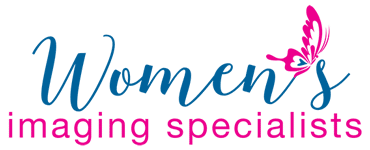Preventing breast cancer starts with healthy habits, like limiting alcohol intake and staying physically active. It’s important to understand what you can do to reduce your risk for breast cancer.
Healthy Diet & Foods to Eat to Prevent Breast Cancer?
Having a healthy diet may decrease your risk of some types of cancer, not to mention diabetes, heart disease and stroke. The Mediterranean diet focuses on mostly plant-based foods, such as fruits and vegetables, whole grains, legumes and nuts. Eating a Mediterranean diet with extra-virgin olive oil and mixed nuts may reduce the risk of breast cancer. People who choose to follow this diet choose healthy fats, like olive oil, over butter and fish instead of red meat.
Breast Cancer Link to Drinking Alcohol & Smoking Cigarettes
There are some risk factors that you cannot control, such as a family history. However, there are lifestyle changes you can make that may lower your risk. Studies have shown that even those with a high-risk for breast cancer can decrease the chances through lifestyle changes. Limit alcohol, as development of breast cancer is greater if you drink. The recommendation, based on research on the effect of alcohol on breast cancer risk, is to limit yourself to less than one drink a day as even small amounts can increase the risk. Don’t smoke. Evidence has been showing a link between smoking and breast cancer risk, especially in premenopausal women. Not to mention, not smoking is one of the best things you can do for your health. Research has shown that meal plans rich in fruits and vegetables while being low in starchy carbohydrates may help prevent breast cancer and breast cancer recurrence.
Obesity & Breast Cancer Risk
Being overweight or obese increases the risk of breast cancer. If obesity occurs later in life, particularly after menopause, it makes the chances greater so control your weight. Physical activity helps you maintain a healthy weight, which will help prevent breast cancer. The department of Health and Human Services recommends at least 150 minutes a week of moderate aerobic activity or 75 minutes of vigorous aerobic activity weekly, plus strength training at least twice a week. Breastfeeding might play a role in reducing breast cancer. The longer you breastfeed, the greater the proactive affect. Plus, breastfeeding can help you lose your pregnancy weight without dieting with could compromise your baby’s health. You naturally burn calories to make breast milk every time you nurse!
Estrogen Hormone Replacement Therapy & Radiation Breast Cancer Risks
You should limit dose and duration of hormone replacement therapy. A combination of hormone therapy for more than three to five years increases the risk of breast cancer. Talk to your doctor about nonhormonal therapies and medications instead. If you require hormone therapy, try using the lowest dose that works for you and have your doctor monitor the length of time you take hormones. Avoid exposure to radiation. Some studies suggest a link between breast cancer and radiation exposure. Reduce your risk by only having these tests done when absolutely necessary. Note that breast ultrasounds are non-invasive, radiation free diagnostic tests. Mammograms require very small doses of radiation but the risk of harm from this radiation exposure is extremely low. The benefits of mammography far outweigh this low risk of harm!
Birth Control Pills & Breast Cancer Link
Some older studies suggest that the higher levels of estrogen doses in birth control pills prior to 1985 slightly increased the risk of breast cancer. In these studies however, 10 years after discontinuing the birth control pills the risk of breast cancer returned to the same level as women who never used oral contraceptives. Current evidence does not support an increase in breast cancer with today’s birth control pills.
Breast Cancer Early Detection & Prevention Via Digital Mammograms & Ultrasounds in Stockbridge & Athens Georgia
The most important thing you can do is be vigilant about breast cancer detection. Do monthly exams and be aware of any changes to your breasts such as a new lump or a skin change. Have a yearly mammogram done with Women’s Imaging Specialists when your doctor recommends you start. Contact us for more information!
About the author: Raja P. Reddy, MD is a board certified diagnostic radiologist specializing in breast imaging. He is also a contributing editor for Women’s Imaging Specialists, a leading provider of outpatient women’s imaging services in the greater Atlanta, GA area.
Women’s Imaging Specialists offers Mammograms and Ultrasounds at locations in Athens, GA; Cumming, GA; Dublin, GA; Eagles Landing, GA; Fairhope, AL; Gulf Shores, Al; Gwinnett, GA; Monroe, GA; and Warner Robins, GA.

